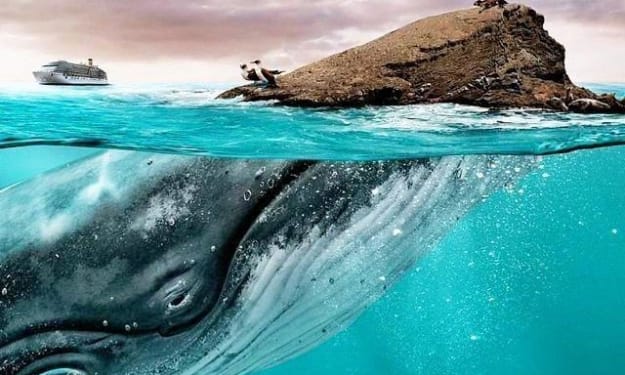Eating monkeys and washing your face with cow urine, why is Africa, where humans originated, still very backward?
Africa, where humans originated, is still far behind

When you think of the poor places in the world, what is the first thing that comes to your mind? Many people may unconsciously think of Africa, because in the minds of most people, Africa is a poor, backward, messy and unsanitary place.
But do you know that Africa is the origin of the common ancestor of human beings. For the origin of human beings, people are more willing to believe in Darwin's theory of biological evolution, that is, human beings evolved from Homo sapiens, but people's ancestors may not have been at the beginning. native species in an area.
It is understood that the common ancestor of people is Homo sapiens in ancient times. However, most Homo sapiens at that time lived on the African continent. They lived on the African continent for hundreds of thousands of years. Later, Homo sapiens gradually evolved wisdom. Want to cross the ocean and see the view across the sea.
As a result, some people left the African continent and distributed to all parts of the world, evolving into various regions and countries today.
You must know that the economic and technological development of many countries has been very fast. However, as the birthplace of the common ancestor of mankind, why is Africa still relatively backward?
In fact, some African countries are still developing well, but most places are still relatively backward. Why is the continent that once nurtured so many people unable to develop?
Eating monkeys and washing your face with cow urine, why is Africa, where humans originated, still very backward?
As early as in the past, African monkeys were a very down-to-earth meat food that was accepted by civilians, because there were many ferocious animals living on the African grasslands at that time, such as tigers, lions, etc. However, the ancestors of humans But they can't compete with these ferocious animals at all, so they can only kill those weak mammals to fill their stomachs.
Africans will capture wild monkeys or apes in the dense jungle as food, and of course some people will keep these captured monkeys as pets.
For Africans, it is much easier to catch monkeys than gorillas, because gorillas are relatively large and aggressive. If they are not careful, they are likely to be killed, even in some African backward In primitive tribes, even children would go to the jungle in groups to catch monkeys when they were bored.
They found that the smoked monkey meat is simply delicious on earth, but this meat is not as perfect as they thought, because there have been related studies and found that eating dead monkey meat is likely to be infected with Ebola Virus.
This is also the reason why the Ebola virus once spread widely in Africa, which is likely to be related to the killing of monkeys. In addition, some monkeys and orangutans in the wild African jungles may also carry HIV, so when they interact with these When animals are killed, it is very likely that they will be accidentally infected, so this disease has also caused many Africans to suffer.
Many people may be very curious, why do Africans have a soft spot for monkeys? Monkeys are very sensitive, how did they catch it so easily? Even children can catch monkeys.
In fact, the reason why Africans catch monkeys is mainly because they are too lazy. In fact, Africa is very rich in materials, and the local land is fertile, but they are too lazy to plant them. way to go out hunting.
Although monkeys are very sensitive when climbing trees, each species has its own weaknesses, and the same is true for monkeys. The biggest hot spot for local monkeys is gluttony. They especially like to eat rice, but Africans are also caught The weakness of monkeys is actually very easy when hunting monkeys.
They will drill a small hole in a coconut shell, which happens to be about the thickness of the monkey's forearm, and put the rice in the coconut hole. When the monkey reaches out and grabs the rice, it can't pull it out. prey to Africans.
In addition to hunting monkeys, the locals also have a very strange and even unacceptable behavior, which is to wash their faces with cow urine. This custom also refers to the African Nile people. The reason for being tall has something to do with cows.
In the eyes of the Nile people, longhorn cattle are an indispensable existence in the local area. Cow dung can be used as fuel, and almost all their necessities are obtained from cattle, and they will wash with cow urine. , and even some arid areas, will shoot the blood of cattle to quench their thirst.
As the origin of human ancestors, why has Africa developed so backward, and even derived so many unacceptable customs? In fact, some people think that it is very good that Africans can wear shoes.
Because in the era of war and famine, they basically lived a life of no settlement.
In fact, the reason why Africans have developed so slowly, even in many places, is mainly due to the lazy genes and traditional thinking of the local people.
Some people also think that the slow development of Africans is actually reflected in the period of Homo sapiens, because at that time some people went out of the African continent and went to other places to find a new life, but these people chose to be content with the status quo. It did not develop in a good way, so it slowly evolved into an African. Do you have anything else to say about this? Please leave a comment below.
About the Creator
suzanne darlene
Take you to understand scientific knowledge
Enjoyed the story? Support the Creator.
Subscribe for free to receive all their stories in your feed. You could also pledge your support or give them a one-off tip, letting them know you appreciate their work.






Comments
There are no comments for this story
Be the first to respond and start the conversation.